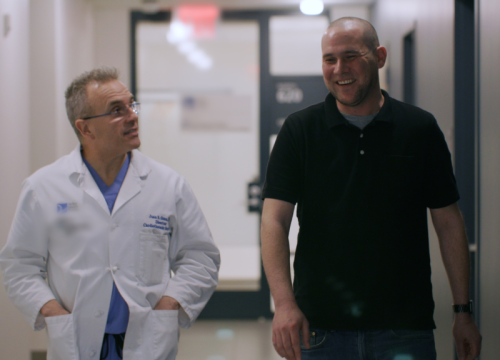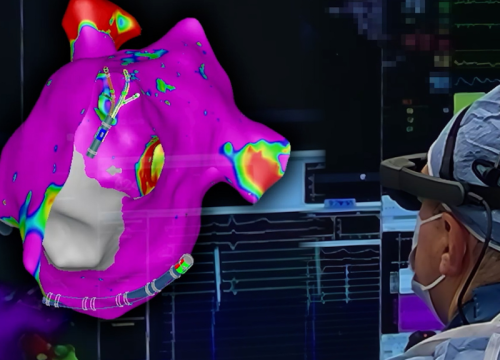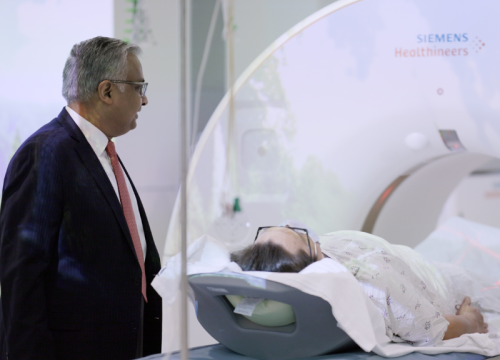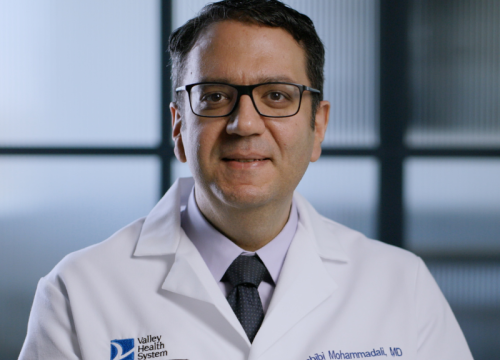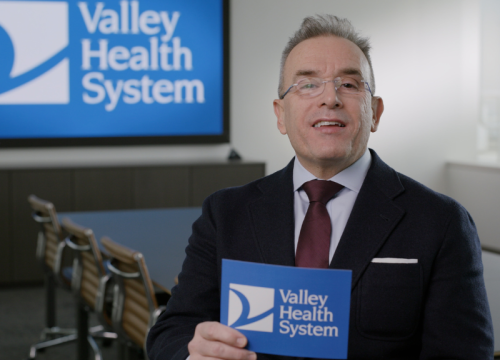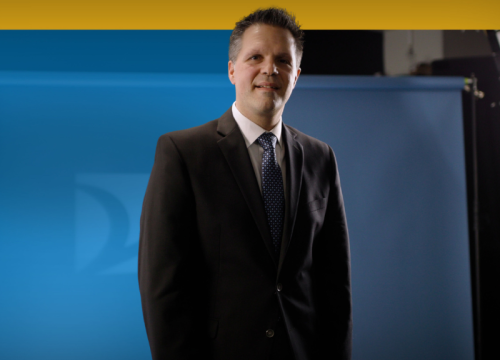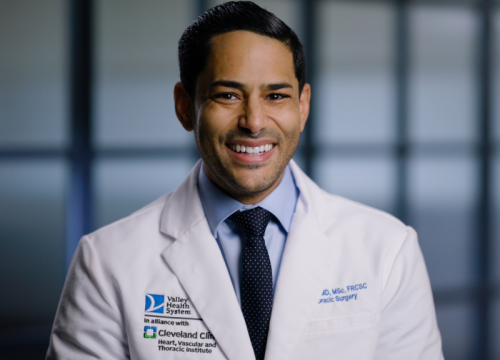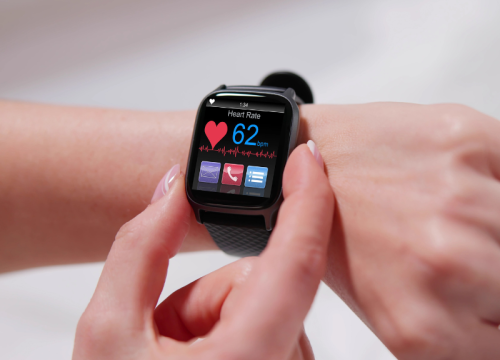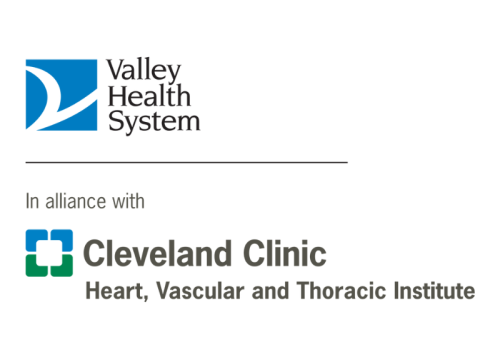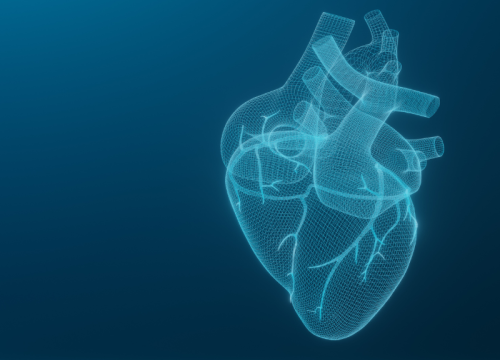Interventional cardiology uses catheters or other devices inserted through your blood vessels to diagnose and treat heart disease, including narrowed or blocked arteries.
In this way, interventional cardiologists at Valley provide minimally invasive treatment options for a range of heart conditions.
Watch: Interventional cardiology is a subspecialty of cardiology that uses catheter-based techniques to diagnose and treat heart disease. Interventional cardiologists are the specialists trained to perform these minimally invasive detection and treatment procedures.
The Valley Approach to Interventional Cardiology
Patients who come to Valley are offered state-of-the-art cardiac care in our cardiac catheterization lab. The primary focus of the interventional cardiology team is to widen arteries using minimally invasive, non-surgical methods.
This approach offers the best experience to our patients with the least amount of discomfort.
Our team is continually researching ways to ensure safer and more effective heart procedures for our patients.
Conditions Treated
- Angina (Chest Pain)
- Aortic Stenosis
- Chronic Total Occlusion (CTO)
- Coronary Artery Disease
- Heart Attack
- Mitral Valve Prolapse
- Mitral Valve Regurgitation
- Patent Foramen Ovale (PFO)
- Atrial Septal Defect (ASD)
Why Choose Valley for Interventional Cardiology?
- Advanced diagnosis options: Our team performs intravascular ultrasound and fractional flow reserve, which measure the pressure and flow through specific arteries. These measures can then be used to diagnose issues that call for treatment, including a percutaneous coronary intervention (PCI).
- Radial artery approach: For our catheter procedures, we insert a catheter into the radial artery in the wrist rather than the femoral artery in the groin. Using the radial artery minimizes the risk of bleeding, improves patient satisfaction and reduces recovery times, often allowing patients to go home the same day.
- Same-day percutaneous coronary intervention (PCI): A PCI, or angioplasty, is a noninvasive procedure to improve blood flow and relieve symptoms of heart disease. At Valley, PCI can be performed on some patients as a same-day procedure if they meet stringent criteria to ensure patients’ safety. Our patients receive follow-up calls at home to ensure a healthy recovery.
- Chronic total occlusion (CTO) interventions: Our team uses newer approaches and equipment that allow our physicians to reach the area of blockage safely from a different artery on the opposite side of the heart. This allows our team to approach the site of the blockage from behind. This approach is safer and more likely to be successful for CTO intervention compared to previous, traditional methods.
- High-risk interventions for complex conditions: We are now able to offer interventional procedures to patients with left main disease and complex heart disease that involves multiple blood vessels. This is possible through the use of heart support devices such as the Impella® left-ventricular assist device. This ensures that a damaged heart will be able to continue to provide adequate blood flow by helping the heart pump blood during high-risk procedures.
- Dissolving blood clots more directly: Valley’s interventional cardiologists use the EkoSonic® Endovascular System to deliver blood-clot-dissolving medications directly into blood clots in the lungs, dissolving them quickly, safely and in a more targeted fashion.
- Team approach to individualized plans: Through a collaborative, team-based approach, Valley’s interventional cardiologists work with doctors of numerous specialties to share ideas; help patients select a plan of care that is right for them and their goals; and deliver optimal care to each and every patient.


